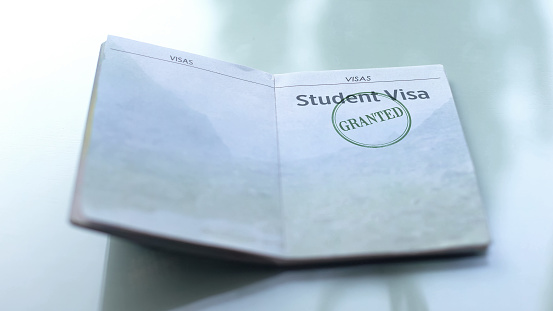
It is likely that you may require a visa to enter the nation where you will be studying if you plan on studying abroad. If you intend on studying abroad, you should check with the nation's embassy or consulate. Listed below are some of the most regularly asked questions we hear concerning student visas and study Abroad visa procedure.
A visa is a piece of papers that provides you permission to enter a foreign country. The only folks who can receive a student visa are those who have a recognised place of study at a registered institution for a particular period of time.
Due to the fact that numerous nations have unique visa requirements, your first visit should be the embassy website of the country where you plan to study or intern.
When should you submit your application for a student visa?
Before going to your study location, you should always apply for a visa through your home nation. You will normally have to wait until you have received an official offer from a university before filing a visa application, and you may be required to submit your application in person at an embassy in order to be approved.
Prior to your chosen vacation date, allow yourself ample time to deal with any concerns that may occur or to share information. If you require any additional information, you should contact your college or institution.
What sort of visa will you require?
Depending on the country you are visiting, the particular name and sort of visa you require may change, but it is expected that you will need a non-immigrant student/study visa.
This generally means that you do not aim to build a permanent presence in that country and that you are simply there to study for a limited length of time.
You should, however, contact with the embassy or consulate of your selected study site in your home country to identify the precise kind of visa you require and, consequently, the applicable application form (this must be where you legally reside or where you are a native) (this must be where you legally live or where you are a national).
What is the process for applying?
Before you can apply for your visa, you may be needed to give documentation of your admission into a course at the institution or college where you intend to study.
In order to find out which visa you will need to apply for, you should first contact the institution or college where you will be studying in order to gain clarity and/or to request that they offer you all of the essential paperwork for your application.
It is suggested that you wait until your institution or college has notified you of the right visa you must apply for and any documentation you must give before starting with the application.
In many countries, applications may be filed in a number of means, such as through mail, courier, in person, or online, to mention a few alternatives. If you are still confused, call the embassy or consulate of your host nation and enquire about the procedure of acquiring a visa, or search up the information on their website.
If false information was supplied or critical facts were omitted during the visa application procedure, the visa would be cancelled and the applicant will be refused admission.
How long do you anticipate it will take to acquire your visa?
According on the country and your nationality, processing a visa could take anywhere from a couple of days to several months or even longer. Make sure you give plenty of time for your visa to be completed, as speeding an application is not encouraged - and may result in you being refused a position at the conference.
Is it feasible to extend your visa while you're in the country?
This is largely depends on where you are studying. In some countries, extending your visa is uncomplicated, yet in others, it is more complex, and you may even be obliged to leave the country in order to extend or renew your visa.

Leave a Reply